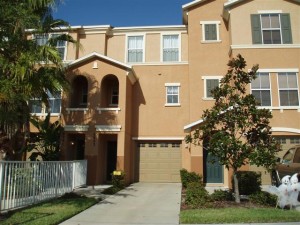There are many commu nities who go about things the right way and who experience good success with properly funding their reserve accounts. Other communities fail to think things through and reserve planning eventually becomes a big problem down the road. One secret to successful completion is to get a “map” or plan, a track to run on that will lead you to proper funding. Neglecting to do this correctly might have disastrous consequences. You may wind up cash strapped or even owing a special assessment.
nities who go about things the right way and who experience good success with properly funding their reserve accounts. Other communities fail to think things through and reserve planning eventually becomes a big problem down the road. One secret to successful completion is to get a “map” or plan, a track to run on that will lead you to proper funding. Neglecting to do this correctly might have disastrous consequences. You may wind up cash strapped or even owing a special assessment.
Here are three simple steps you might take in order to avoid failures of this type and have great results.
1. Hire a competent reserve study professional.
When doing this, you should look for someone who has been designated as Reserve Specialist (RS) by the Community Associations Institute or someone with a background in construction and/or engineering. You’re going to really need to have a detailed and accurate reserve study because that can help to prevent errors of omission and miscalculations. It may be tempting for an association’s board to try doing it themselves, but that will likely not have up-to-date construction costs, proper useful life expectancies, and proper remaining life expectancies. Failure to hire a competent professional might result in inaccurate reserves accounts. So do not make the error of ignoring this crucial step.
2. Pay special attention to the major improvements of the community.
This is nearly as vital as hiring a competent reserve study professional. Whenever analyzing improvements it is imperative to pay special attention to the major improvements of the community since these components make up the bulk of the reserve funds. You could have almost all of your reserve items accurately detailed and accounted for, but if a major item, like roofing for example, is miscalculated or has an inaccurate unit cost, it will throw all of the reserve funding out of whack. It is not atypical for roofing to account for 40-50% of the overall present costs of a townhome community. It’ll help to review the major components or items in detail.
3. Consider both the component method as well as the pooled method.
Finally, when analyzing your reserve study funding you would like to make sure that you understand all of your options. There are two traditional funding methods: the component method and the pooled method. The component method takes each individual line item and computes its annual contribution amount by taking its unfunded balance and divides it by the item’s useful remaining life. The pooled method has a 30 year cash flow analysis performed to determine that there will be adequate reserve funds on deposit as the reserve components of the property age and are repaired and/or replaced. This analysis takes the total beginning year reserve balance along with the projected annual reserve expenditures over a thirty year period, and through pooling of all of the reserve funds and creating one general reserve fund, arrives at an annual contribution amount so as to provide a positive cash flow and adequate reserve account balance over the next 30 years. There are different factors when each method is more appropriate. Typically, the pooled method will keep reserve funding more level over time and give the association much more flexibility with financial decisions.
As stated earlier, should you aspire to accurately fund reserves, then you definitely would want to stay away from the sorts of mistakes that might mean you wind up cash strapped or owing a special assessment.